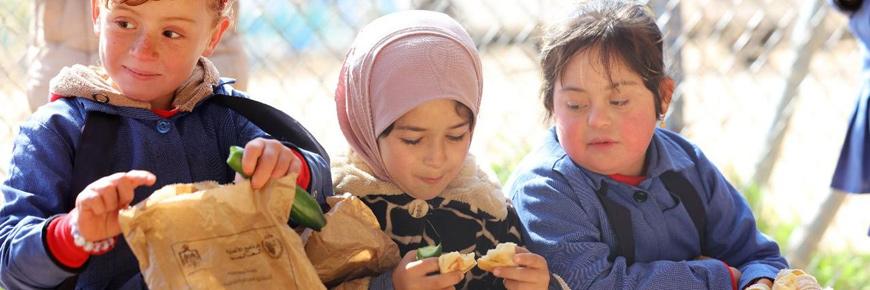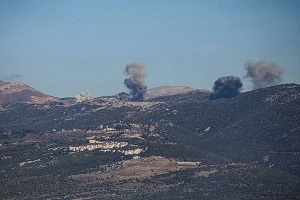WFP resumes school feeding for Jordanian, refugee children

The Jordan Times
AMMAN — The United Nations World Food Programme (WFP) in partnership with the Ministry of Education resumed its school feeding activities to support targeted Jordanian and refugee children currently attending schools across the country.
WFP has been supporting the Ministry of Education with the delivery of the National School Feeding Programme (NSFP) since 2013 and delivers around 41 million school snacks every year to children between the first and sixth grades, the Jordan News Agency, Petra, reported.
The project targets 1,878 schools located in poverty pockets across the country, providing around 420,000 of the most vulnerable Jordanian and refugee children with nutritious snacks during their school day every year.
However, due to the pandemic and measures taken to protect children at schools, numbers this semester vary based on school status and children’s attendance.
The programme provides children with two types of snacks, date bars or a healthy meal. The date bars are distributed to 332,000 children in 1,565 schools located across all 12 governorates in Jordan.
The nutritious bars account for 50 per cent of the snacks distributed each semester by the Ministry of Education under the NSFP, and are fortified with vitamins and minerals addressing typical micronutrient requirements, Petra reported.
The healthy meals are distributed to 87,000 children in more than 300 schools, including all children attending formal schools in the Syrian refugee camps. The meal consists of a fresh savoury pastry, a cucumber and a piece of fruit; either a banana or an apple.
"Our goal is to help children continue their education by providing them with nutritious food during their school day. The snacks support learning by helping children concentrate on their lessons rather than their hunger, foster healthy eating habits, and support impoverished families, especially during these difficult times of the COVID-19 pandemic," said Jonathan Campbell, WFP’s Deputy Country Director to Jordan.
"In parallel, the healthy kitchens also support the local economy by purchasing the raw ingredients for the meals from small local farmers", he added.
The meals are made in 17 productive kitchens located in eight governorates across the country.
WFP’s partner, the Royal Health and Awareness Society, operates 11 kitchens in communities, while the six kitchens in both Zaatari and Azraq refugee camps are run by World Vision. The kitchens provide job opportunities for around 700 workers from vulnerable communities, especially women and people with disabilities.
WFP and partners are taking all measures against COVID-19 to ensure the safety and health of school children and workers involved in the process of production and distribution of snacks, Petra reported.
Kitchens have been sterilised before the production processes began, while protocols have been setup and are being followed by all, adhering to all preventive measures and using personal protective equipment at all times.
Latest News
-
 Crown Prince chairs meeting to review programme on combating littering
Crown Prince chairs meeting to review programme on combating littering
-
 King congratulates Morocco monarch on football team’s 2025 Arab Cup win
King congratulates Morocco monarch on football team’s 2025 Arab Cup win
-
 US Senator Accuses Hamas and Hezbollah of Rearming
US Senator Accuses Hamas and Hezbollah of Rearming
-
 One Dead in Israeli Strikes on South Lebanon
One Dead in Israeli Strikes on South Lebanon
-
 Putin Ready to Talk to France’s Macron on Ukraine, Says Spokesman
Putin Ready to Talk to France’s Macron on Ukraine, Says Spokesman